Articles
-
What is Tree Trunk Protector Paint? Why Do Orchardists Use It?
One of the most effective preventive measures an orchardist or homeowner can take during the cold season is painting the trunks of their trees. Known commercially as “tree whitewash” or “tree trunk protector paint,” this application serves as a vital shield, significantly increasing a tree’s resistance to environmental stressors. However, the benefits of this practice extend far beyond simple aesthetics. In this comprehensive guide, we will explore the numerous advantages of painting tree trunks, explain the science behind it, and…
Read More -
Essential Autumn Horticulture Actions & Strategies
As the vibrant colors of summer fade into the crisp golds and reds of autumn, the agricultural world enters a critical transition period. In autumn, most orchard fruits have been harvested, and the trees begin their physiological preparation for the cold winter months. This is a pivotal time for orchardists and gardeners. A specific set of actions performed during the fall ensures that trees remain healthy when faced with freezing temperatures, and it’s called “Autumn Horticulture”. If these measures are…
Read More -
Articles
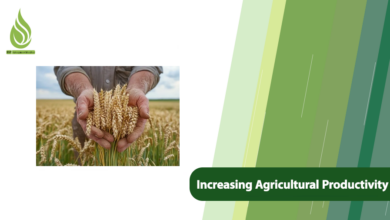
What Are the Ways of Increasing Agricultural Productivity?
Generally speaking, agricultural productivity refers to the efficiency with which we utilize available resources, such as water, soil, human labor, and modern technology, to produce greater quantities of higher-quality crops. As the global population surges toward an estimated 10 billion by 2050, the pressure on the agricultural sector to produce more food with fewer resources has never been more intense. Here, we’ll introduce the most important strategies for increasing agricultural productivity, ensuring that these methods are applicable. The Concept of…
Read More -
When Does Tree Root Development Occur?
Roots are among the most fundamental components of a tree. This vital organ is responsible for absorbing water and minerals from the soil, anchoring the tree securely, and storing energy reserves. The overall health and longevity of a tree are heavily dependent on the quality and condition of its root system. If roots do not grow properly or are compromised, one cannot expect the above-ground organs, such as the trunk, branches, leaves, or fruits, to thrive. Here, we’ll explore exactly…
Read More -
The Impact of Alkaline Rain on Agriculture
As environmental pollutants accumulate and climate change intensifies, the likelihood of various meteorological anomalies increases. While acid rain has long been a topic of discussion in environmental science, there is another, less frequently discussed but equally significant phenomenon known as “alkaline rain” or “alkaline precipitation.” This phenomenon poses a substantial threat to agricultural sustainability worldwide. Here, we will examine the negative impacts of alkaline rain on agriculture, explore the science behind its formation, and detail effective strategies for mitigating its…
Read More -
Articles
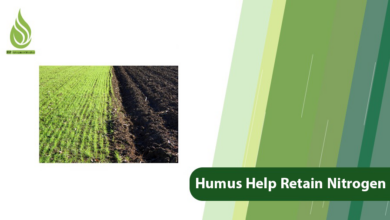
How Does Humus Help Retain Nitrogen in Soil?
Humus is a natural and organic substance whose presence in agricultural and orchard soils leads to improved plant growth and higher productivity. This material provides numerous benefits for both soil and plants. One of humus’s most important functions is its role in retaining nitrogen in the soil. Soils that contain an adequate amount of humus are able to hold nitrogen more effectively and prevent its rapid loss. As a result, fertilizer efficiency increases and plants are able to access nitrogen…
Read More -
Articles
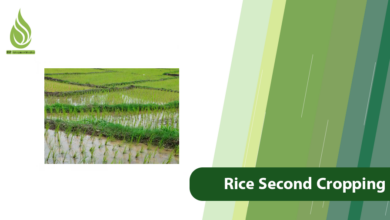
Second Cropping of Rice: Best Strategies for Better Yield
Second cropping of rice is the replanting of rice after the first crop has been harvested, and is usually done in some susceptible areas. If you have planted rice in an area where replanting is possible, you must feed the plants well to harvest a quality crop in the second crop. In this article, we present a fertilization schedule for the second crop of rice. What is Second Cropping of Rice? Second cropping of rice means replanting rice in fields…
Read More -
Articles
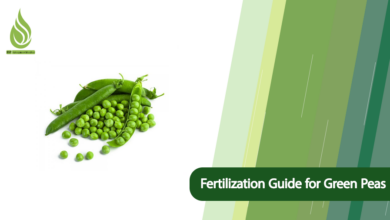
A Complete Fertilization Guide for Green Peas
Green peas (Pisum sativum L.) are among the most widely consumed and economically important legume crops in the world. Valued for their high nutritional content, pleasant flavor, and versatility in fresh, frozen, and processed forms, green peas play a vital role in both human nutrition and sustainable agricultural systems. This comprehensive guide explains the botanical characteristics, environmental requirements, and nutritional needs of green peas, with a strong focus on fertilization management from planting to harvest. Rich in plant-based protein, dietary…
Read More -
Articles
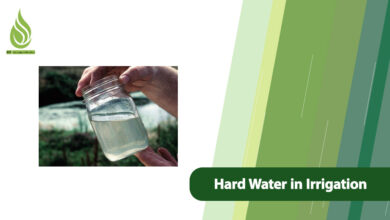
What Happens If the Agricultural Irrigation Water Is Hard?
Hard water in irrigation is a common challenge for farmers worldwide, particularly in arid and semi-arid regions where groundwater sources often contain high levels of dissolved minerals. Hard water is defined as water with elevated concentrations of calcium (Ca²⁺) and magnesium (Mg²⁺) ions, typically exceeding 150 mg/L (or parts per million) of calcium carbonate equivalent. While these minerals are essential for plant growth in small amounts, excessive levels can lead to significant issues in soil health, plant nutrition, and irrigation…
Read More -
Articles
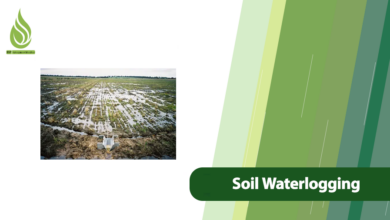
What Causes Soil Waterlogging and How to Fix It Effectively
Soil waterlogging is a major challenge in agriculture worldwide, affecting millions of acres of farmland and leading to significant crop losses every year. It occurs when excess water saturates the soil, displacing air from the pore spaces and creating anaerobic (oxygen-deprived) conditions in the root zone. This not only stifles plant growth but can also cause long-term damage to soil health and productivity. Farmers often underestimate this issue, but ignoring it can result in root suffocation, nutrient deficiencies, increased disease…
Read More -
Articles
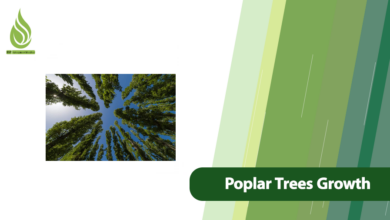
Key Strategies for Rapid Growth in Poplar Trees
Poplar trees are a powerhouse in the wood and paper industries, offering tremendous potential for economic profitability when cultivated properly. Whether you’re a farmer, landowner, or investor looking to capitalize on sustainable forestry, understanding the key strategies for fostering the rapid growth of poplar trees is crucial. Achieving rapid growth and high productivity requires precisely meeting the tree’s nutritional, environmental, and management needs. This comprehensive guide provides practical, science-backed advice for anyone aiming to accelerate poplar tree development. Introduction to…
Read More -
Articles
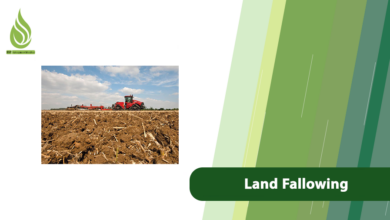
What Is Land Fallowing? When Should You Do It?
In sustainable farming, land fallowing, often described as letting the soil rest, is a traditional practice where farmland is left unplanted to recover its strength and fertility. This is not merely leaving a field empty; it is a planned method to restore the soil’s nutrients and structure. In this guide, we will explain what land fallowing is, when to use it, its many advantages, and how to manage soil nutrients during this period. Whether you farm in the dry areas,…
Read More